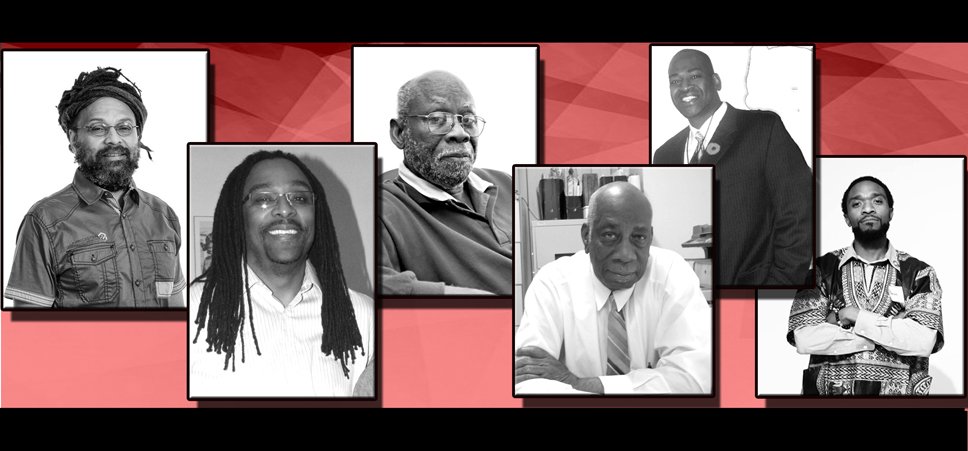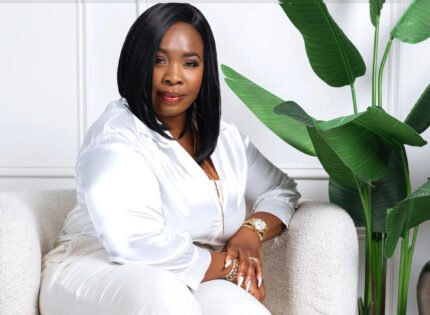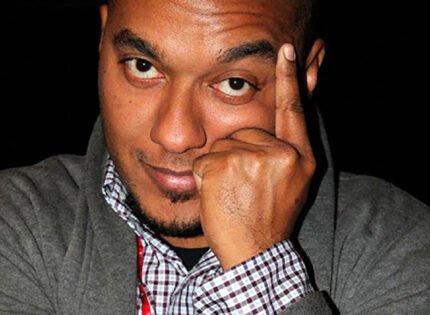English speaking Blacks have had a presence in Quebec for hundreds of years. Theirs has been a turbulent history.
These days community advocates say things don’t look too good, but there’s hope ….
Egbert Gaye
It’s a pivotal year for Montreal with the 375th celebration of its founding together with the 50th anniversary of Expo 67 and observance of Canada’s 150th birthday, all of which are contributing to an under-current of excitement among some cultural groups across the city. Not so much in the English-speaking sector of the Black community for whom there’s not too much to celebrate.
Although it’s one of the most deeply-rooted of all the cultural groups in the city, English-speaking Blacks have been at a stand-still for the past two decades or so, bearing witness to crumbling institutions, crippling social problems and an inability to mobilize resources to propel the community into the future.
It wasn’t always like that.
There was a time when the community was at the vanguard in the movement for social change in the city, projecting its voice against acts of injustice and discrimination.
A time when the community was empowered by more than 40 active organizations, many of which were working in cohesion to take on issues in areas of education, economic growth, youth, culture and political activism.
It was being propelled forward by institutions such as Union United Church, the Negro Community Centre (NCC), The Black Coalition of Canada, The Quebec Board Of Black Educators, The Black Theatre Workshop, The Black Studies Centre, The Montreal Association of Black Business Persons and Professionals, Black Studies Centre, Also Known As X (AKAX), The Caribbean Cultural Festivities Association, The Black Community Council of Quebec (BCCQ) together with neighborhood associations in NDG, Cote des Neiges, LaSalle, Laval, the West Island and The South Shore.
With community-held buildings in Little Burgundy, downtown Montreal, NDG and the West Island prospects for the future seemed bright from the late 1970s and throughout the 1980s, and the numbers were strong with the 1991 census showing about 180,000 Blacks in and around Montreal, more than half of whom were English speaking.
That was then.
Today, the English speaking community is but a shadow of its former self and does not present well.
A steady exodus of many of its young, its best and brightest in search of better opportunities outside of Quebec has left it emaciated and drained. The 2001 census show there to be only about 50,000 of the 147,000 Blacks in Quebec. The number of active service organizations has dwindled significantly, and three of those once-held properties have since been disposed, with the resources of only one still available to the community.
Educators and community workers continue to bemoan a troubling high school dropout rate that exceeds mainstream averages, and more issues of education and employability continue to nag our youth.
But most troubling among all the indicators of stagnation is our under-representation in the political process together with our inability to build and maintain an infrastructure to educate and employ our own and serve our community.
By comparison other groups are excelling in those areas, with the Jewish as well as the Korean, Chinese and other South Asian communities able to put between 50% to 70% of their people to work, and also able to provide supplementary education to a significant number of their students.
As we mark-time we bear witness to other groups as they consolidate their place in Quebec. And as bystanders in the progress parade, the way forward seems daunting.
More than most others, Dan Philip has lent a hand in trying to shape the future of English speaking Blacks in the province. As head of the Black Coalition of Quebec for the past two decades or so, his has been a booming voice against the many injustices meted out against Blacks and other minorities here.
His hope was that our community would be sufficiently empowered to take its rightful place in the future of the city and the province.
“We’re not in any position to project into the future,” he told the CONTACT. “
For us Blacks, especially in the English speaking sector of the community, we’re still day to day.”
Philip, who has been involved in community work for more than 50 years, says it was easier to envision a cohesive and strong community back in the day when the NCC was the central organization.
“The community was smaller and tighter-knit back then,” he says. “But as it grew with people coming from many different places with different concepts of community and development.”
“Also, the diversity within the community led to many forming and functioning only with their little groups with a mentality that doesn’t allow us to project outside of that (clique).”
He added that the situation is that everyone is looking out for themselves with little thought of community building.
Brian Smith is among the current generation of leaders taking their place in the community.
The former Boston University footballer is an expert on financial literacy, currently working with the Toronto-based Canadian Foundation For Economic Education.
He too harbors some reservations about our ability to propel into the future with an empowered community, mostly because of our lack of understanding of “the way money works.”
“Our community has been programmed to be consumers not producers, so everything is geared for us to buy with little concern about the impact of stretching our credit to the limit.”
Since 2011, Smith has been organizing an annual talent show, Monnie Monnaie, framed around the concept of financial literacy for youth, which draws close to 400 young people.
He says it’s an enduring challenge to get our youth to stop identifying with the symbolism of wealth that they see in the media.
“Too many still identify with going to clubs, drinking, expensive clothes and shoes, all of which draws money away from the community with nothing coming back to us.”
He says our community needs extensive reprogramming to identify “our self worth” and learn to trust and work with each other.
“Also, the hope is for us to reach our kids at a younger age and get them to make better choices when it comes to money and spending.”
Michael Farkas, working in the Little Burgundy community since the late 1990s, first at BUMP, a police-community liaison group, then at Youth in Motion where he is now the executive director, which puts him in everyday contact with young men and women that will make up the next generation. He is also the president of the Round Table For Black History Month.
As he looks around the part of the city that was once the hub of the Black English speaking community, he says it’s a numbers game.
“The community is definitely in decline in this area, mostly because most of the families that could’ve been considered the foundation have been forced to move for one reason or another.”
“Now, the few that are left only have fond memories and nostalgia to rely on… we can’t really build on that.”
The history of Blacks in Little Burgundy dates back to the mid-1800s when they came from the USA, Atlantic Canada and the Caribbean and found homes in the area to be near to their jobs on the railroad and give birth to institutions such as the NCC, Union United Church, Rockhead’s Paradise, Bibleway Pentecostal Church and The UNIA.
For decades the area remained the pulse of the community and a repository of music, dance, spiritual leadership, family life and political advocacy. Names of its favored children like Oscar Peterson, Oliver Jones are forever etched in the annals of history.
Today, like the people, most of the institutions have wilted and the spirit is all but gone from the place. In their place is a bustling ‘quartier cartier’ made up of the ‘nouveau riche’ of Montreal. Some say urban renewal, Michael Farkas says: “Negro removal.”
Dr. Clarence Bayne saw it all unfold.
As one of the founders of the Black Studies Centre, The Black Theatre Workshop, The Quebec Board of Black Educators and the BCCQ he too lent a hand in shaping the community in its early days. He is currently chairperson at the Black Community Resource Centre.
He acknowledges the stagnation that has since plagued the community, but sees a way forward by effectively using the remaining resources at hand, pointing to a framework of principles that came out of a conference that was held at Val Morin, in the Laurentians, in 1992.
“What came out of that forum were a number of recommendations and protocols for organizations and groups to have a united front when speaking to government, public institutions to the community and even to each other,” he says.
Bayne, a longtime Marketing professor at Concordia University’s John Molson School of Business, says the Forum offered comprehensive guidelines to deal with challenging issues such as education, youth employment and employability, arts and culture.
“Many of the established organizations such as the BTW, BSC and the Round Table are on board, and while we are looking at the achievements of the past, we’re also looking at new issues and way to function more efficiently.”
Pharaoh Hamid Freeman is relatively new to community organizing. Six years ago he founded One Full Circle, a youth-driven group focusing on partnerships between French and English speaking Blacks, entrepreneurship and culture. It recently melded itself within the folds of DESTA, a more established organization operating in Little Burgundy.
Freeman who serves as the executive director of DESTA says while he is optimistic about the future of the community, he has immediate concerns on how we deal with current issues facing youth, such as education, the justice system and mental health.
“We see about 200 youth around 18 years-old and a bit older coming to access our services every month, and almost all of them are affected by a conventional school system that cannot relate to them, stereotypes them and for the most part drives them away.”
He says one of the fallouts of the many challenges faced by those young men and women are a looming mental crisis in the community.
“Over the last couple years, I’ve seen many suicides among young people and I know I’ll be seeing more if we don’t deal with it.”
His optimism, he says, hinges on the many young people around him who are embarking on the road of self-employment and are reaching out to help others in the community.
“The aim I think is to equip the next generation with the tools they need for the future.”
Similar optimism from Michael Smith, new president of the Jamaica Association of Montreal, who a year ago this month replaced long-serving Noel Alexander in the position.
He too acknowledges that our numbers have diminished and that there has been a reduction in the number of organizations and resources available to the community, but says it’s an opportunity for us to better utilize what’s left to better serve us.
“At the Jamaica Association, we’re also dealing with the issue of young people who have moved away from community work and we’re trying to reconnect with them. We’re also making the association’s programs more accessible and looking for new ways to self-finance.”
Smith says that the way forward for the community has to be accompanied by a new way of thinking.
“There was a time when we looked at the things that we didn’t have and blame the white man, but that time is gone. These days we have to collaborate more and involve the community more.”
With a lifetime of experience, Dan Philip sees a mountain of challenges in fostering more involvement and trust in organizations and community work.
“Truth is, we’ve never developed a true sense of community. Many who join organizations do so with their own agenda, not mindful of what has been tried in the past what has failed.”
“Many never put a cent towards community development, but are quick to heap blame and distrust on organizations and people serving the community, because they think money is flowing from government.”
“The question is: how do we educate our community…?”














